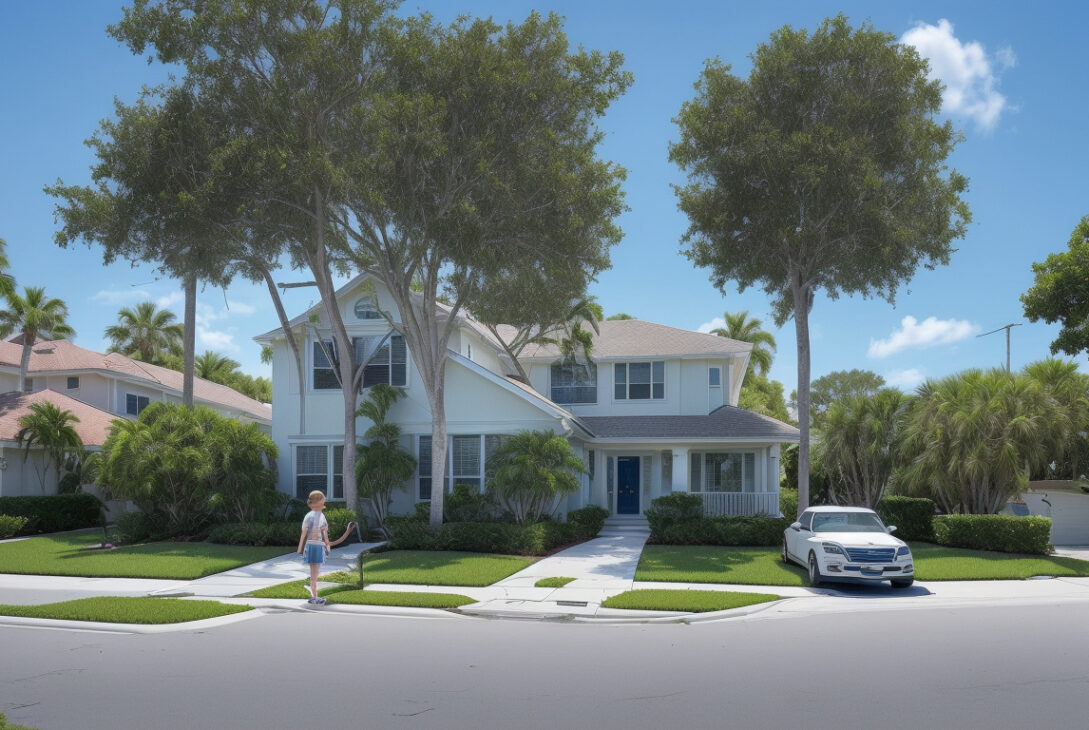Sarasota Neighborhoods Adopt Controversial Automated Speed Enforcement Technology
By Josh Salman and Aaron Mammah
Suncoast Searchlight
SARASOTA, FLA. – In a move stirring debate about privacy and the delegation of law enforcement powers, several homeowners associations (HOAs) in Sarasota County have begun using automated cameras with license-plate readers to catch and fine speeding drivers within their private neighborhoods. One such community is Laurel Oak Estates and Country Club, where drivers received fines for exceeding posted speed limits on private streets—an enforcement action traditionally undertaken by public authorities.
Automated Speeds Surveillance Within Private Communities
A recent case involved a motorist driving a small Toyota hatchback who entered the Laurel Oak neighborhood off Bee Ridge Road at 39 mph, surpassing the 25 mph speed limit. A speed-capturing camera recorded the offense, and the driver received a $125 fine from the HOA within weeks. Unlike citations from law enforcement, these notices come from the HOA itself rather than police or sheriff’s offices.
Laurel Oak, along with other area communities such as The Landings in Sarasota and Rosedale in East Manatee County, uses technology provided by private companies like Traffic Logix and Flock Safety. These companies market automated license plate readers and speed cameras to HOAs as tools for enhancing safety and reducing speeding and other violations in gated and private neighborhoods.
Legal and Procedural Context
Under Florida Statute 720.305, HOAs may fine members up to $100 per violation, with higher penalties allowed for ongoing offenses, up to a $1,000 maximum. Laurel Oak’s fines for speeds of 41 mph and above can reach $200, slightly above the statutory cap for a standard fine. Each citation requires a 14-day notice and a hearing before a neutral committee – typically the HOA board – to determine whether the fine is justified.
However, unlike government-issued speeding tickets, HOA fines do not impact driving records, insurance premiums, or license points. The consequences for nonpayment are civil and limited to HOA actions such as vehicle banishment from the neighborhood or liens against homeowners who reside in the community.
Privacy and Oversight Concerns
The use of surveillance technology by private entities raises significant privacy concerns, particularly regarding the collection, storage, and use of personal data. Adam Schwartz, privacy litigation director at the Electronic Frontier Foundation, expressed apprehension over the amount of personal movement data collected, which could reveal sensitive details about individuals, from attendance at political protests to private leisure activities.
“With these cameras, governments and corporations can track where people have been and potentially sell that information,” Schwartz said. The expansion of such technology into the HOA sphere means that private companies, rather than public agencies, control sensitive data, prompting calls for clearer regulations and accountability.
Perspectives from Law Enforcement and HOA Officials
The Sarasota County Sheriff’s Office confirmed that the use of speed cameras by HOAs on private roads is legal and constitutes a civil matter between the vehicle owner and the HOA. They emphasized that such enforcement does not fall under their jurisdiction since these roads are privately owned and maintained.
“We have no concerns about these HOAs using speed cameras as they have nothing to do with law enforcement,” said Dana Judge, spokesperson for the Sarasota Sheriff’s Office. The sheriff’s office also noted that they have access to data collected by these private cameras if necessary but that they have not been involved in any enforcement actions arising from HOA-issued citations.
Local HOA attorneys highlight the liability issues driving some communities to adopt these enforcement technologies. Scott Petersen, an attorney specializing in HOA matters, remarked that speed enforcement is often viewed as a necessary step to prevent accidents and reduce liability if a speeding vehicle causes harm in the neighborhood.
“HOAs want to demonstrate they are actively addressing safety concerns,” Petersen said. “But I understand the privacy concerns and sympathize with residents who worry about data sharing and the breadth of information gathered.”
Private Companies Fueling a Growing Market
Traffic Logix and Flock Safety are among the leading companies profiting from the trend. Traffic Logix promotes significant speed reductions within communities using its technology and even markets the system as a revenue generator for HOAs through the issuance of fines. Customer testimonials featured by the company attest to the effectiveness of cameras beyond standard signage.
Flock Safety reports usage in over 5,000 communities nationwide, with HOAs comprising more than 40% of their business by 2021. Traffic Logix advertises leasing speeds cameras to HOAs for under $400 per month on average, making the technology financially accessible for many private neighborhoods seeking traffic control measures.
Despite outreach efforts, both companies declined to comment on the implications and controversies surrounding their products.
The Local Landscape
Laurel Oak stands out as an upscale Sarasota subdivision with 406 homes and amenities including an 18-hole golf course. The neighborhood has emphasized strict enforcement of speed limits, with fines ranging from $75 to $200. Yet, the HOA reportedly did not consult local law enforcement about the legality of their program and operates independently from traffic enforcement agencies.
Other Florida communities have followed this pattern: Country Club Harbour near Panama City and Gran Lake HOA in St. Augustine have also implemented similar programs targeting speeding and enhancing security through license plate scanning.
Conclusion
The proliferation of automated speed enforcement technology in private neighborhoods is part of a broader national trend blurring the lines between government law enforcement and private community management. While these systems offer potential safety benefits, they carry inherent risks to privacy and raise questions about transparency, regulatory oversight, and the appropriate limits of HOA authority.
As the debate continues, residents and officials alike will need to weigh the benefits of traffic calming against the implications of pervasive surveillance in their communities. Without clear public policy safeguards, the expansion of such technology could reshape the relationship between individuals, privacy rights, and the enforcement of rules on what were once considered private roads.
For more information, follow Suncoast Searchlight for ongoing coverage of privacy, technology, and community developments in Sarasota and across Florida.










